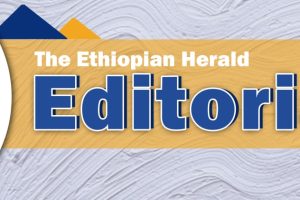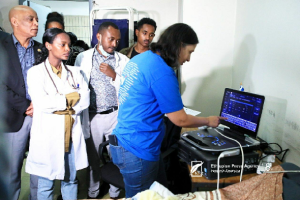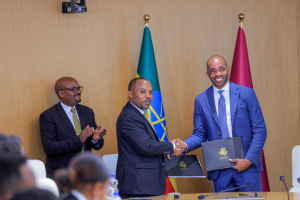
As Ethiopia is undergoing an overall economic and political reform, media is among the sectors at the top of the agenda in a bid to promote freedom of expression and independence of the media.
Apparently, this is a right move as, despite having a media tradition that goes back a century, Ethiopia does not have a proud history when it comes to freedom of expression and freedom of the press. Here, it should be noted that newspaper publication started at the down of the 20th century and radio and television broadcasting began in 1935 and 1965 respectively. However, every government that comes and goes obviously opt to exploit the media for protecting the narrow interests of few.
Hence, more often than not, the media have not been provided with enough space to entertain a diversity of interests. The only time the media saw a glimmer of hope for press freedom was during the times of political transition. For instance, after the 1974 revolution, the media was free of censorship and served, for a brief period of time, as a platform for freedom of expression. During the early periods after the revolution, the Amharic daily Addis Zemen was a platform for debate, freedom of expression and exchange of ideas.
But, soon after, the military government introduced censorship once it controlled the entire political space. During the military junta’s 17 years of rule, all media outlets were under the direct control of so-called Workers’ Party and had little room to entertain a diversity of ideas or voice the concerns of the people. For the most part, the media were subject to official censorship. That was also what had happened during the early periods of EPRDF.
In the 1990s, signs of a free and independent press have emerged and the media began to enjoy a good environment. During that decade several new magazines and newspapers appeared on Ethiopian stands. Further, the 1994 constitution guaranteed freedom of the press and other mass media and freedom of artistic creativity. Accordingly, freedom of the press specifically includes the prohibition of any form of censorship and access to information of public interest.
In addition, article 29 of the constitution states that in the interest of the free flow of information, ideas and opinions which are essential to the functioning of a democratic order, the press shall, as an institution, enjoy legal protection to ensure its operational independence and its capacity to entertain diverse opinions. Any media financed by or under the control of the State shall be operated in a manner ensuring its capacity to entertain diversity in the expression of opinion.
The purpose of Article 29 is to ensure that both the private and public media outlets are independent and serve as instruments of freedom of expression. However, as days and years went on, the enactment of various laws and proclamations and the absence of independent judiciary worsen self-censorship of journalists and empowered the authority of government to throw journalists to prison than ever before. While many private media outlet were thrown out of the industry, the public media became willing mouthpieces for the ruling elite.
In addition, lack of professionalism culture further dwindled the media’s progress. Now the country seems to be on the right path of democratization. The situation has facilitated a fertile ground for the media to thrive. Over the past ten months, both the private and public media outlets, including tv and radio broadcasters as well as newspapers and magazines have shown a promising inclination to make sure that freedom of the press and freedom of expression is ensured in the country.
Now everybody needs to be cautious and committed to sustaining this promising start. For the old trend not be repeated and the reform should abandon Ethiopia’s old media tradition for the sake of freedom of the press and expression.
The Ethiopian Herald, March 14/2019





